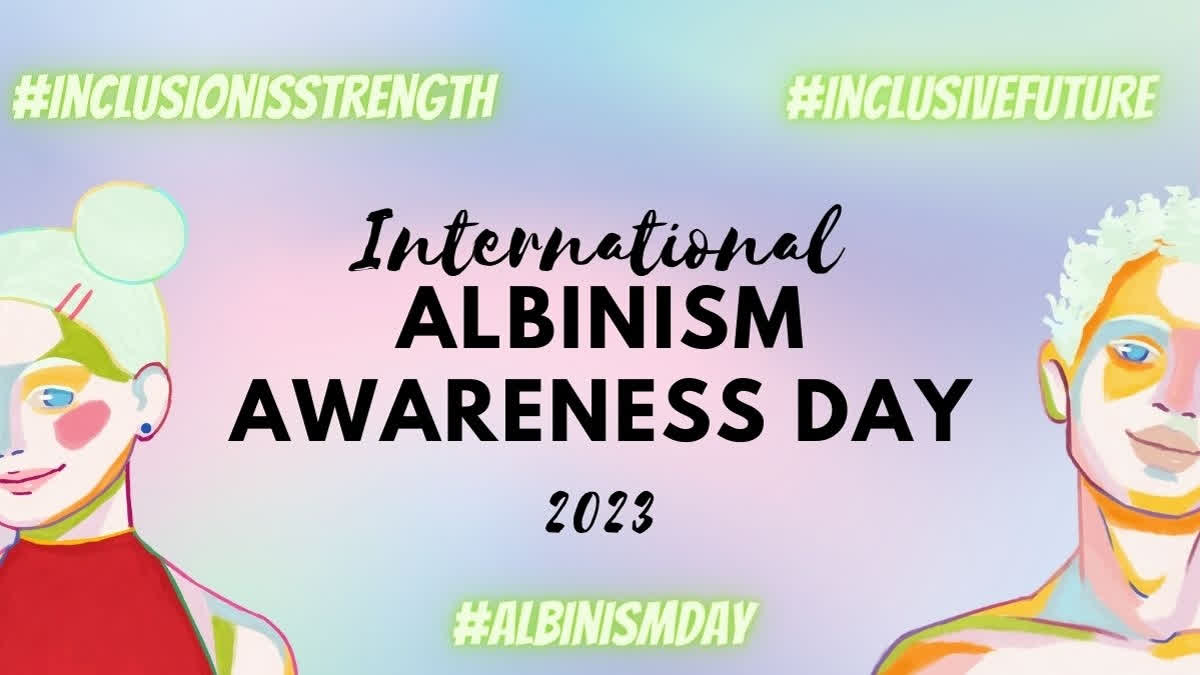Hyderabad: Albinism is a genetically inherited, non-contagious condition in which a person lacks pigmentation (melanin) in the skin, hair and eyes from birth. This condition causes a vulnerability to the sun and bright light in people, as a result, most people suffering from albinism are visually impaired and at high risk of developing skin cancer. There is no cure for this disease, as a lack of melanin cannot be cured.
Both parents must carry the gene responsible for albinism to be passed on to a child, even if they do not suffer from this condition. This condition can occur in both sexes, regardless of their ethnicity or nationality. To make people aware of the health risks suffered by people with albinism, and the violence and discrimination they are subjected to, International Albinism Awareness Day is observed on June 13 every year across the world.
The United Nations General Assembly adopted a resolution on December 18, 2014, which established June 13 as International Albinism Awareness Day. This resolution confirmed the worldwide focus towards albinism advocacy. Along with the worldwide albinism community, National Organization for Albinism and Hypopigmentation (NOAH) encourages everyone to observe and promote albinism awareness on June 13 every year.
In the year 2023, this day is being observed around the theme "Inclusion Is Strength", which builds on last year's theme of ensuring the inclusion of the voices of people with albinism in all sections of life. The theme highlights the importance of the inclusion of a diversity of groups from the albinism community as well as from the outside. This day helps with the inclusion of a broad spectrum of people with albinism in albinism-related discussions such as women, children, youth, older adults, the LGBTQ+ community, and people with albinism from all ethnic backgrounds and races.
People with albinism suffer from various health issues due to the lack of melanin. Their skin is at high risk of developing skin cancer. A majority of people with albinism die due to skin cancer between 30-40 years of age, in several countries. Skin cancer is highly preventable for people with albinism if they are subjected to their right to health, regular health checks, sun-protective clothing, sunscreen, and sunglasses. A lot of countries either lack these life-saving means or are inaccessible to people suffering from albinism. People with albinism need to be targeted for human rights interventions in the manner envisioned by the Sustainable Development Goals because they have been “left furthest behind" in the realm of development measures.
People with albinism also have to face discrimination due to their skin colour, and they are often subjected to various discrimination due to their disabilities and colour. The condition of albinism is still highly misunderstood socially and medically. People with albinism are subjected to discrimination due to various myths and beliefs influenced by centuries-old superstitions, which puts their lives at constant risk. International Albinism Awareness Day acts as a platform for people to introspect and embrace an inclusive future.



